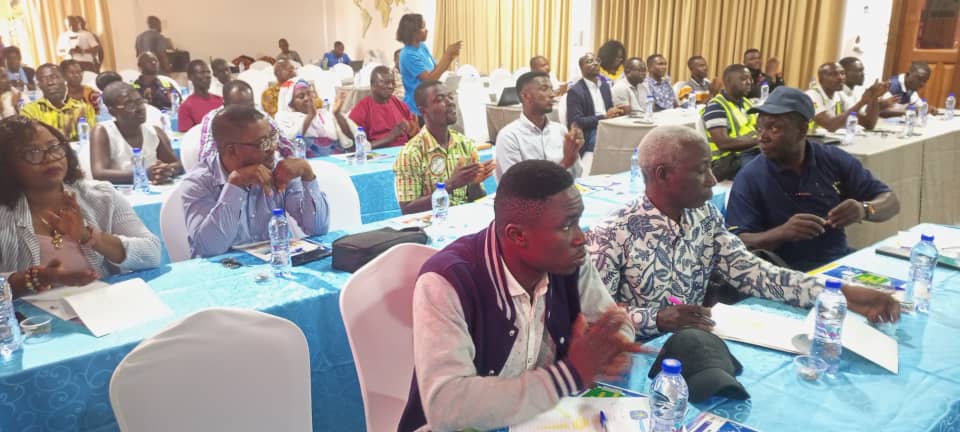By Mildred Siabi-Mensah
Takoradi, Oct. 11, GNA- Engineer John Adjei, Senior Manager in-charge of Energy Efficiency Regulation at the Energy Commission has charged businesses to be wary of some “agents of theft” in the use of electricity to control cost and save energy.
He mentioned agents such as water dispensers, chargers, desk printers, decoders, fridges, and Television sets which were often left unattended as well as one or more of them in use at the same time.
Engineer Adjei said the worst of it was the use of wrong cables and poor earthing systems which had over the period contributed to the high cost of electricity and thus affected the profitability of businesses.
He said this at a day’s training programme for Energy Managers in Metropolitan, Municipal and District Assemblies (MMDAs), Medium, Scale and Medium Enterprises and Hotels in Takoradi.
The workshop hinged on research carried out by United Nations Development Programmes, (UNDP) after COVID-19 which revealed the need for massive education among SMEs to control their electricity bills through responsible consumption.
The study, a collaborative activity by the Ghana Statistical, UNDP and the World Bank in 2020, found that MSMEs and other businesses, were found to have been severely impacted by the COVID- 19 pandemic and so must be resourced in capacity building and corporate governance, access to funding and Energy Efficiency.

The Energy Commission has therefore been mandated to promote efficient energy use at District Assemblies, Ministries, Departments and Agencies (MDAs) and among businesses in the country.
The Executive Secretary, Mr Oscar Amonoo-Neizer, indicated that the Commission would create awareness and promote regulations and standards, in a bid to ensure the efficient utilization of energy resources in Ghana.
“Our work in energy efficiency over the years speaks to our commitment to promoting Ghana’s energy transition through efficient utilization of electricity”, Mr Amonoo- Neizer stated.
According to him, the Energy Sector Recovery Programme had developed a mechanism for monitoring the efficient use of electricity adding, “Hotels for example spend approximately 60 -70 per cent of their operating costs on energy and resources and hence need assistance in adopting best practices to reduce costs, increase revenue generation, and the capacity to withstand future challenge”.
Mr Amonoo-Neizer said the Commission together with Environmental Protection Agency (EPA) had sought support from the UNDP to carry out energy and resource efficiency and conservation training for MMDAs and MSMEs in some Regions.
He added that about 600 personnel would benefit from the training to help ensure the prudent use of energy and resources in their establishments, who become energy and resource managers to conduct walk-through energy and resource audits on regular basis.
Mr Stephen Kansuk, the Head of Environment and Climate Change, at UNDP Ghana, said the UNDP had committed millions of dollars under the three thematic areas of capacity building, responsible consumption of Energy and access to funding to create enterprise opportunities.
“They should be able to attract funds, expand their businesses and ensure resource efficiency in their operations,” he added.
Mr Kansuk said achieving SDG seven by 2030 could be realized through such sustained initiatives.
GNA